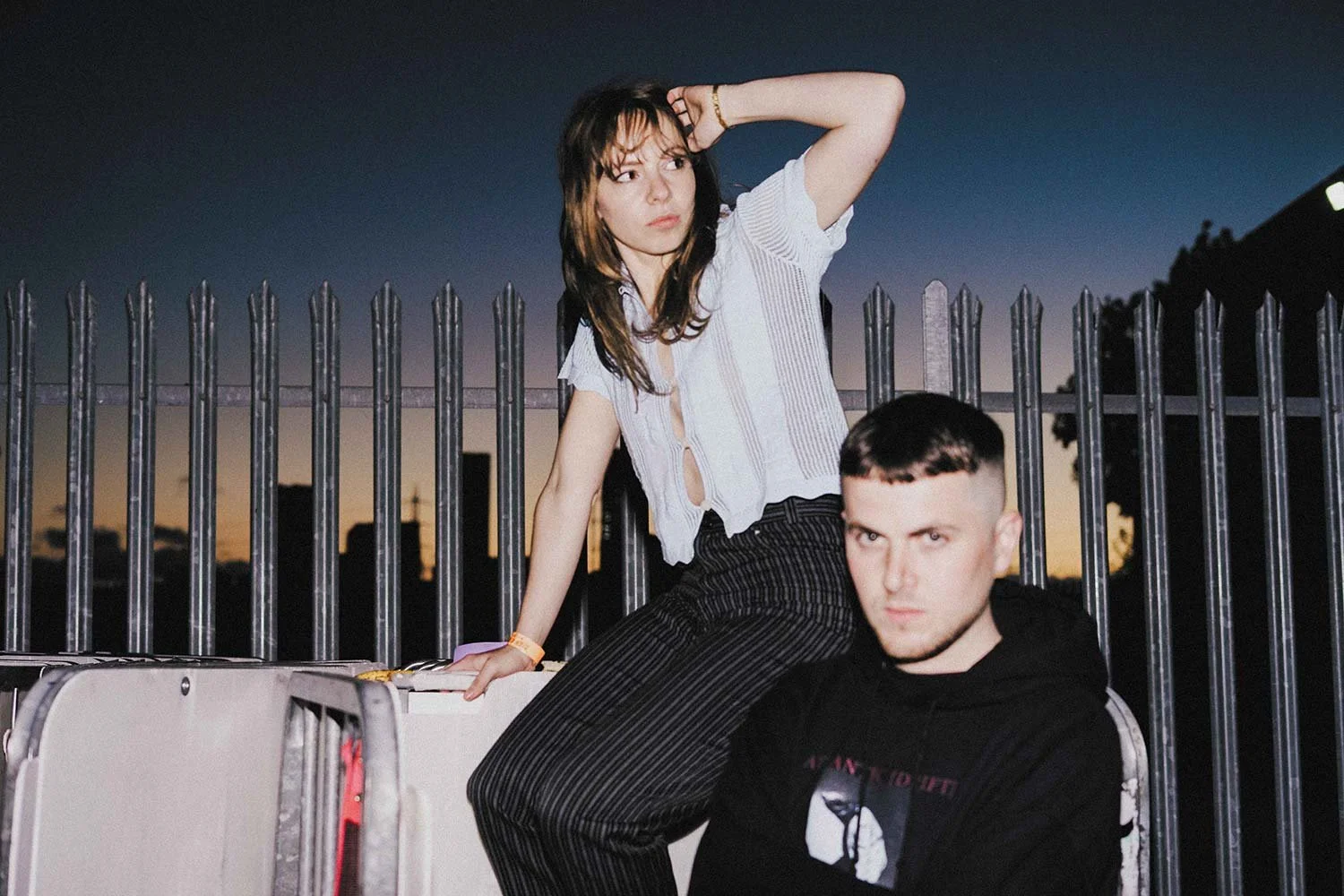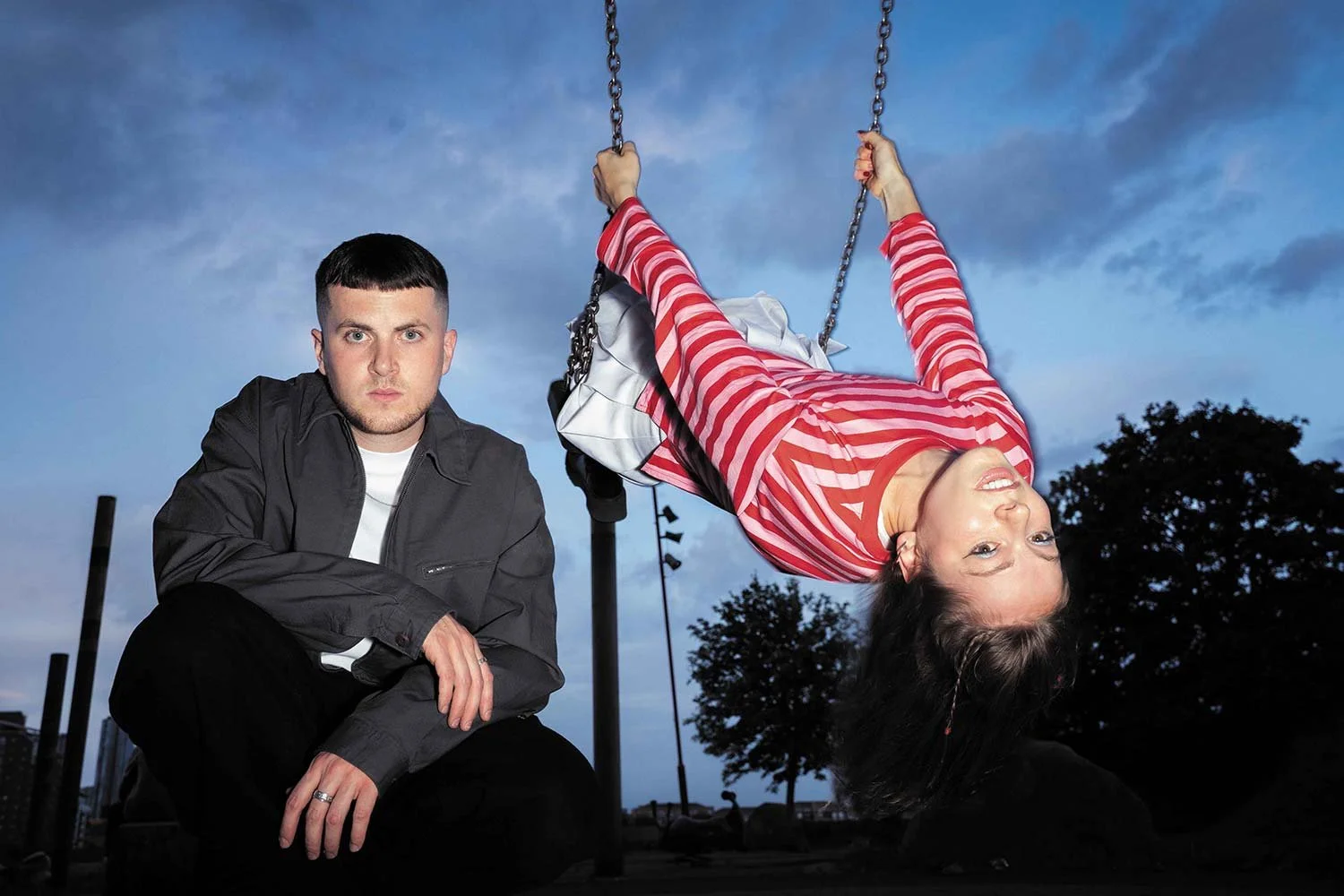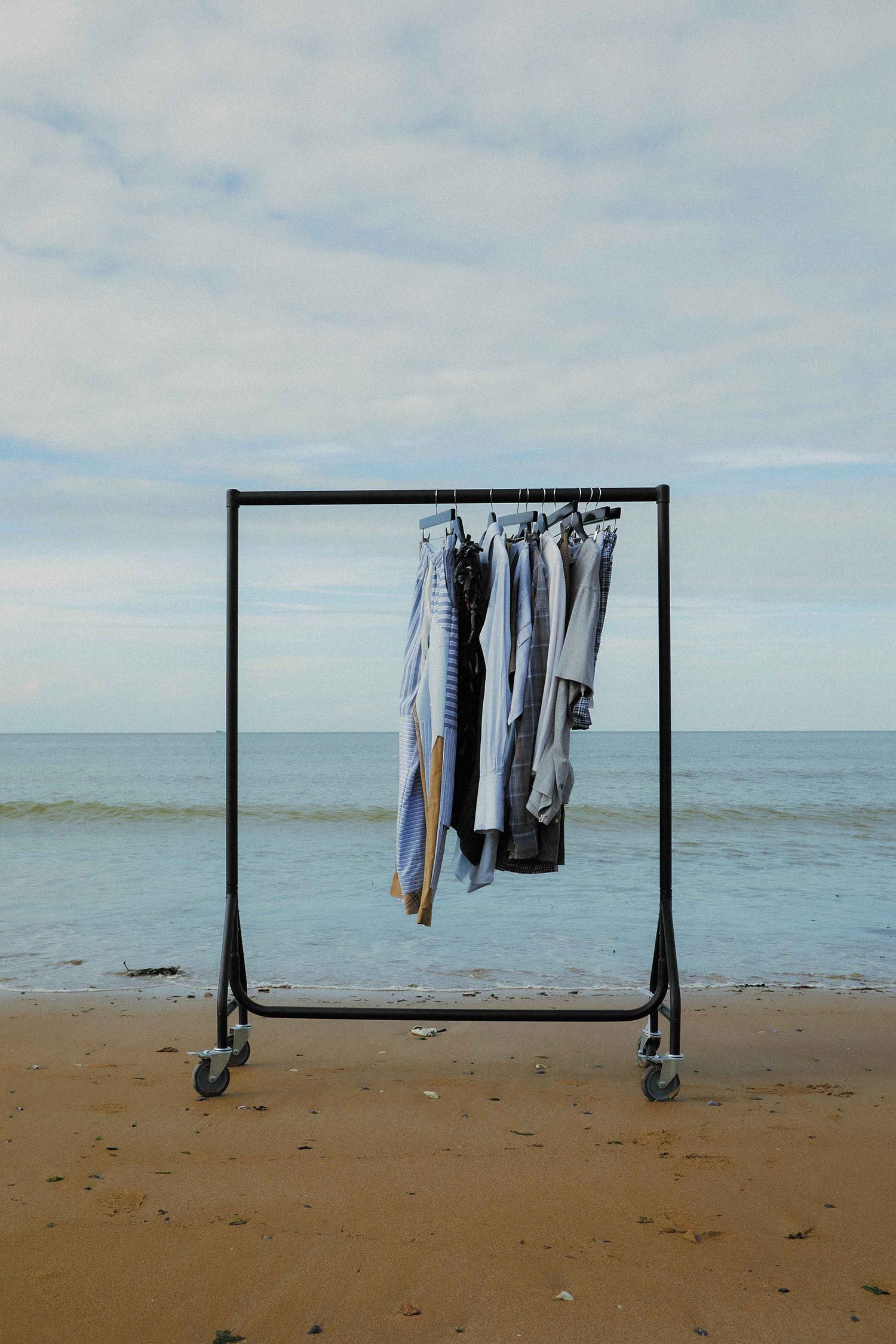IN CONVERSATION WITH… SANDHOUSE (INTERVIEW)
Making music that defies genres, bending and shaping itself into the worlds of grunge, indie pop and shoegaze, Sandhouse have something totally unique.
IMAGES - Hannah Murrell
The creation of Tonbridge’s Caspar Holloway and Suffolk’s Anna Sutherland, the band have already enticed an audience looking for a laid-back melody and floating vocals combined with fuzzy grunge guitar, thumping drums and crashing symbols. There’s pieces of Nirvana, Radiohead and Sleeper across their debut EP Circus. With 50k monthly listeners on Spotify alone, they have a story to tell so we got in touch.
How did you guys meet? What were the Sandhouse seedlings?
AS: The seedlings were a mutual friend, and then we ended up in a band together at uni, just doing battle-of-the-bands stuff with people that we knew. But then we started writing together.
Being from different areas of the country and meeting at Exeter uni is almost like a meant-to-be kind of thing, right?
CH: Yeah. It was really lucky, actually.
Are battle-of-the-bands comps still good for breeding new talent?
AS: I wouldn’t say it was a huge thing at our uni, but it was quite a good impetus for us to rehearse together because there was a lot of drinking and like messing about in our rehearsals, but when we had a gig we’d have to practise for it.
CH: It wasn’t like there was much of a scene. We were just lucky that it connected us and out of our band it was just us two who were interested in writing. But I feel like you and me, Anna, we’ve kind of grown up and not really tapped into a scene. So yeah, we were just lucky to find each other.
AS: When we both found each other, we were like ‘OK, well, we’re taking this really seriously and we’re gonna do it’. And everyone else was like ‘Yeah, it’s a good hang. Like, bring some beers, smoke some weed or whatever’.
What was that conversation like?
CH: I can’t remember exactly. When we did our covers, we were doing our own arrangements and started making it a bit more creative. I’d been doing production on my own anyway, already trying to write instrumentals and I remember I sent Anna a thing or two, and then we started working on stuff. I do also remember us having a conversation at one point, about taking it seriously.
AS: I remember you had a mic and I had written some weird thing for my mum over this YouTube beat. And you were like ‘I can record it in my cupboard’. So I came to your bedroom and recorded it in your cupboard.
Is that like a cupboard/sound booth?
CH: Yeah, it was my makeshift attempt to try to treat the acoustics.
When did Sandhouse actually start?
We were writing music for Sandhouse before the name existed. The name came from my grandma, who is a psychotherapist, and her clinic, which is basically a shed in the garden, is called The Sandhouse.
CH: It feels fitting. Because her type of therapy was, like, sand play therapy, wasn’t it? There wasn’t any lying on the couch in there. It was like almost being creative in there. So I feel like, if you want to, you could draw a lot of parallels.
So, what was next?
CH: We started writing our first ideas when we were both still at uni, and I finished first and came to London, and then Covid hit. We kept working on things and started putting some songs out under a different name. It was a good learning-the-ropes type of thing, of independently releasing.
We were doing it all ourselves - writing, recording, producing, mixing - just us two. It laid the groundwork to be able to make something of a higher standard and that slowly started evolving into what became Sandhouse.
Is it something that you both do full-time? Or have you got side jobs?
AS: We both have side jobs. It’s difficult now that the music side is going well because you’re touring and playing shows.
Is the job still in the realm of music?
CH: No. But for me, that was a deliberate choice. I would rather earn money doing something else so that I’m hungry to work on the music.
Is it hard playing a massive gig at the weekend and then going back to your normal nine-to-five on Monday?
CH: It’s exhausting because I don’t really get a day off ever. But beyond that, I don’t mind it too much because it’s kind of nice to just do some normal stuff for a while, and then once I’ve had a couple of days of that, and I’m starting to go absolutely crazy, then I’m very ready to go back and do music. But obviously it’s frustrating. If you’re trying to put all your energy into the music stuff and you’ve got something else pulling on your time.
AS: Yeah, it’s also if you’re, like, driving back from Manchester and it’s 3am and Caspar has to go and work at the market, or, like, I used to work in a cafe. That was pretty rough.
We’ve seen you described as indie, shoegaze, grunge. But how would you describe yourselves?
AS: I don’t think we really know. But I think the concept of the band is that we’re making music that can run alongside shoegaze or grunge but our influences aren’t necessarily coming from within that genre. So we’re listening to a lot of electronic music, or like properly indie music, and then that feeds into us making something that’s more rocky.
CH: It’s hard for us to put our own label on it. The one that I liked the sound of the most - but I’m not sure it’s like a 360 picture of what we’re doing - is ‘ethereal grunge’. That sounded kind of fitting, but then we’ll write stuff that challenges that perception of it. I think we like the fact that we’re close to a lot of genres but not fully within them, and we’d rather keep it that way.
Your EP Circus came out in May and has done amazing numbers in streams. Are you pleased with it so far?
CH: Yeah, massively. We made a lot of that music a bit of a vacuum, like we weren’t putting it out. We sat and did that whole EP kind of quietly, and then to put it out this way, and it’s got that kind of attention is really good to see.
AS: Yeah, we weren’t playing shows or anything. We were just in the studio all the time.
Are you signed at the moment?
AS: Currently unsigned - we’re hoping that that’s going to change soon but don’t want to jinx anything.
Well, being able to command those sorts of streams without being signed, without someone necessarily putting marketing budget behind it, that is amazing, right?
AS: Yeah, I also think that doing things without any input from anyone else apart from our managers, we’ve really built it, I think that is really exciting. Also doing things on a budget, like with all our music videos, we’ve done very cheap, and through that we’ve met amazing people and learned so much because we’ve just had to sort all of it and learn about camera equipment and stuff like that. I’m actually really glad we’ve had that opportunity.
You’ve got a live tour coming up…
AS: Yeah, we’re about to go on tour with Bleach Lab in November. Seven shows in eight days.
CH: And then there’s some other gigs around that, supporting some other people. I’m excited for the chance to do back-to-back shows. We can really try out some stuff we’ve been writing over the summer.
What does a live show look like?
CH: When we play live, there’s five of us normally, so the core of the project is us two but we do have other guys in the band and they’re increasingly collaborating with us, so they’ve written on some of our songs as well. And for the live show, it’s a full band, so two guitars, bass, drums, vocals, because we want it to be as big a production as it can, to really bring it to life.
Have you had one stand-out moment where you’ve thought ‘Wow, this is happening’?
AS: Definitely. We played a show at Scala in July. Playing on that big stage - that was a real ‘We’re doing it’ moment.
INSTA: @_sandhouse
Feature continues… Add images accordingly, or use galleries.











